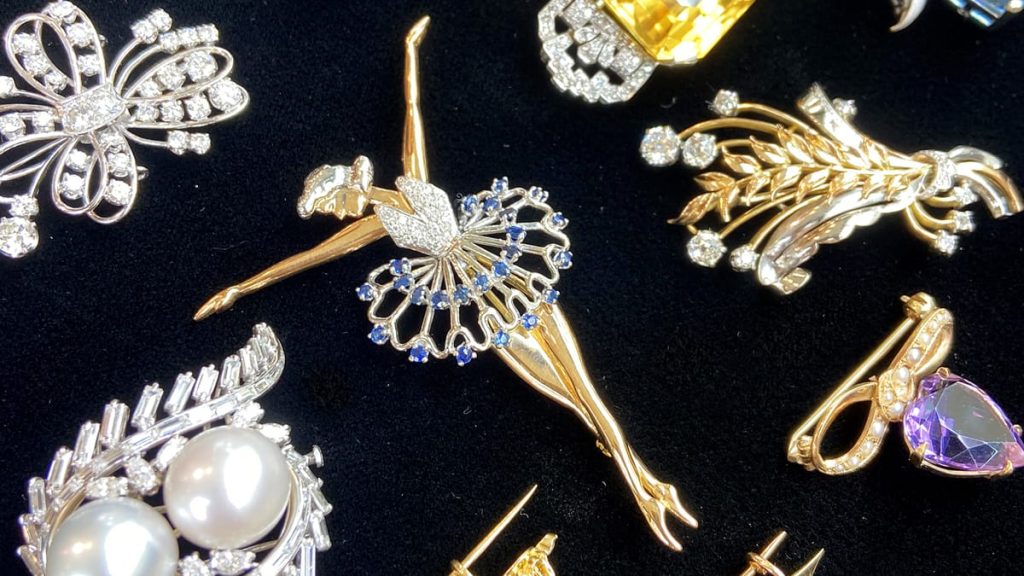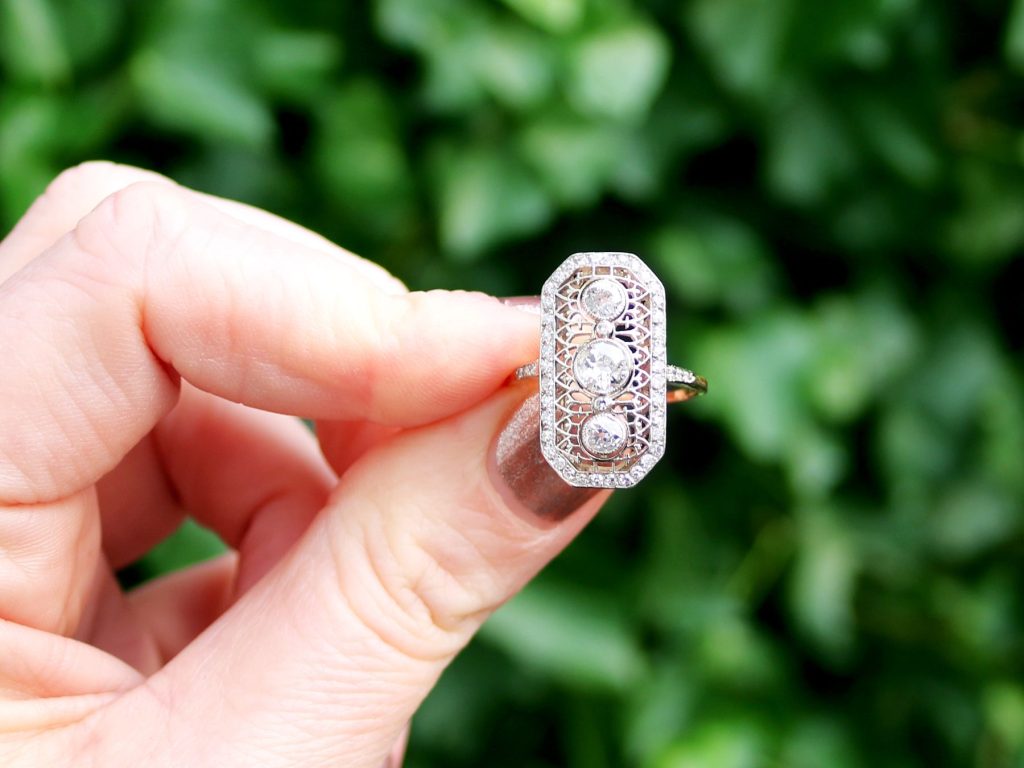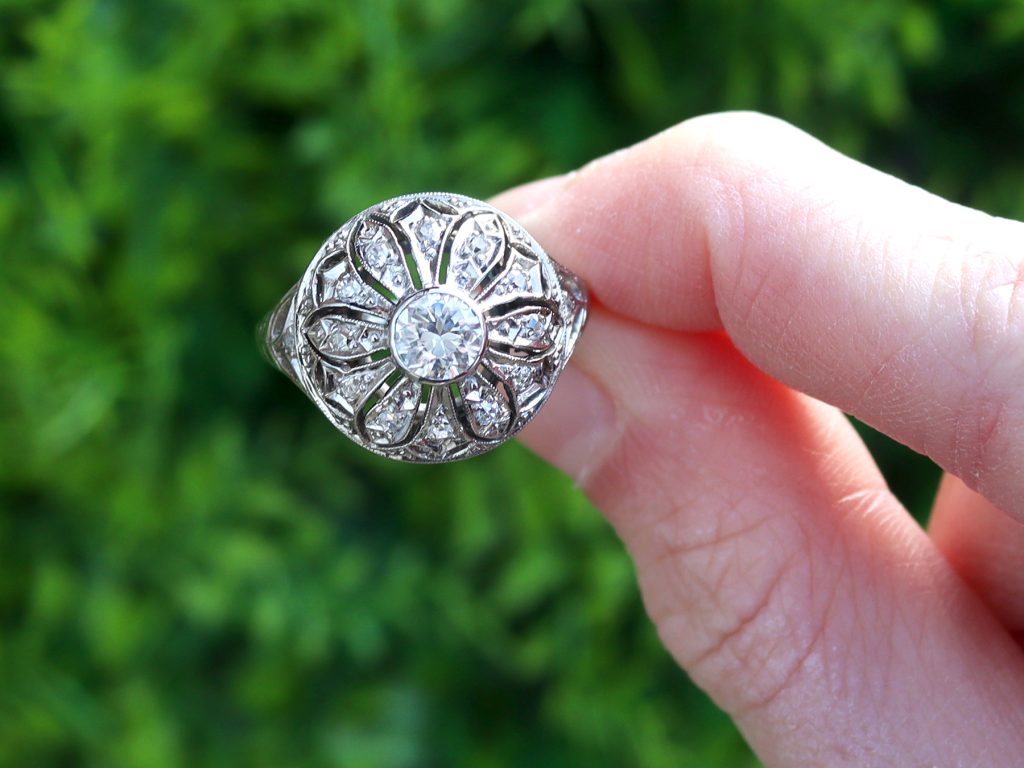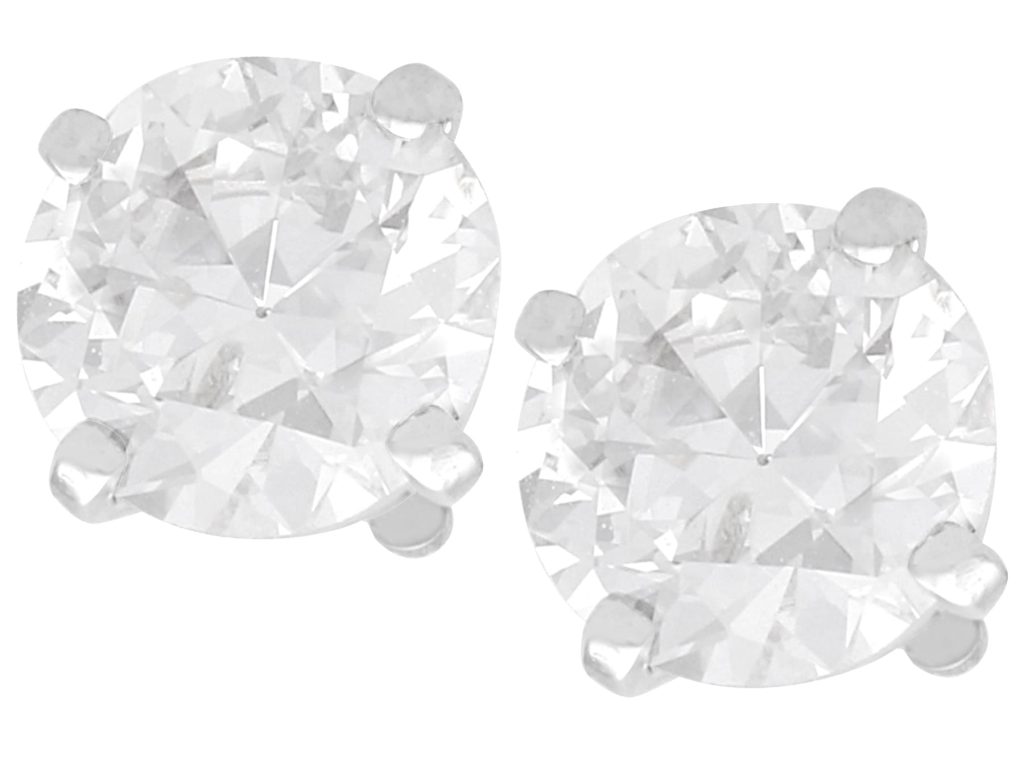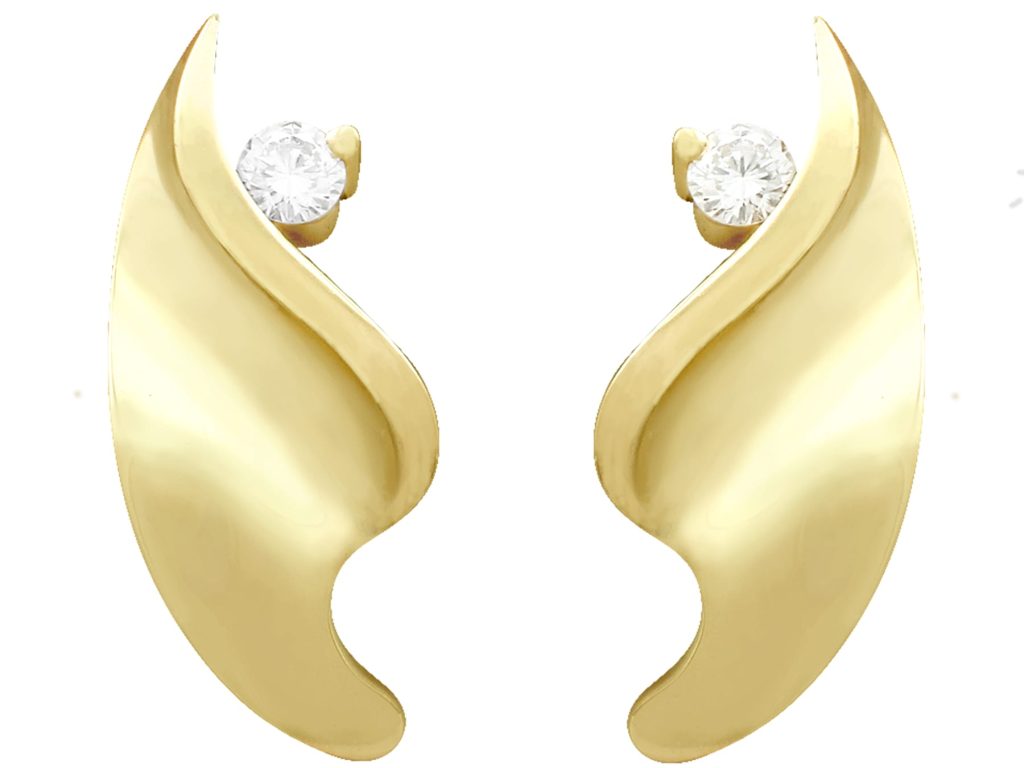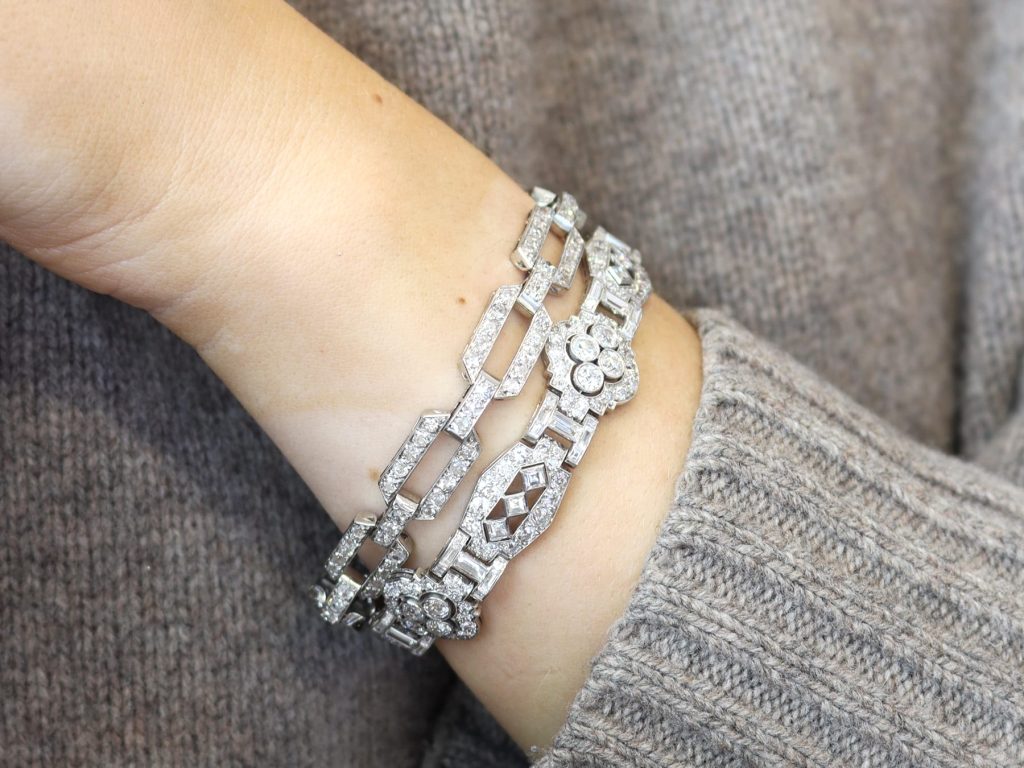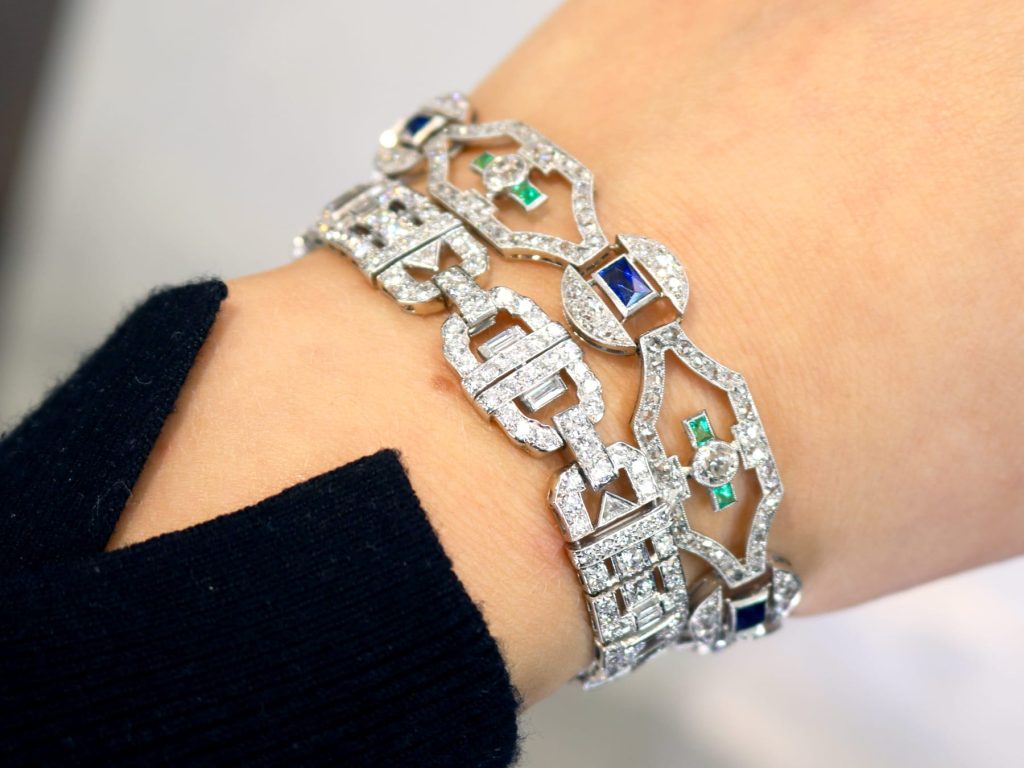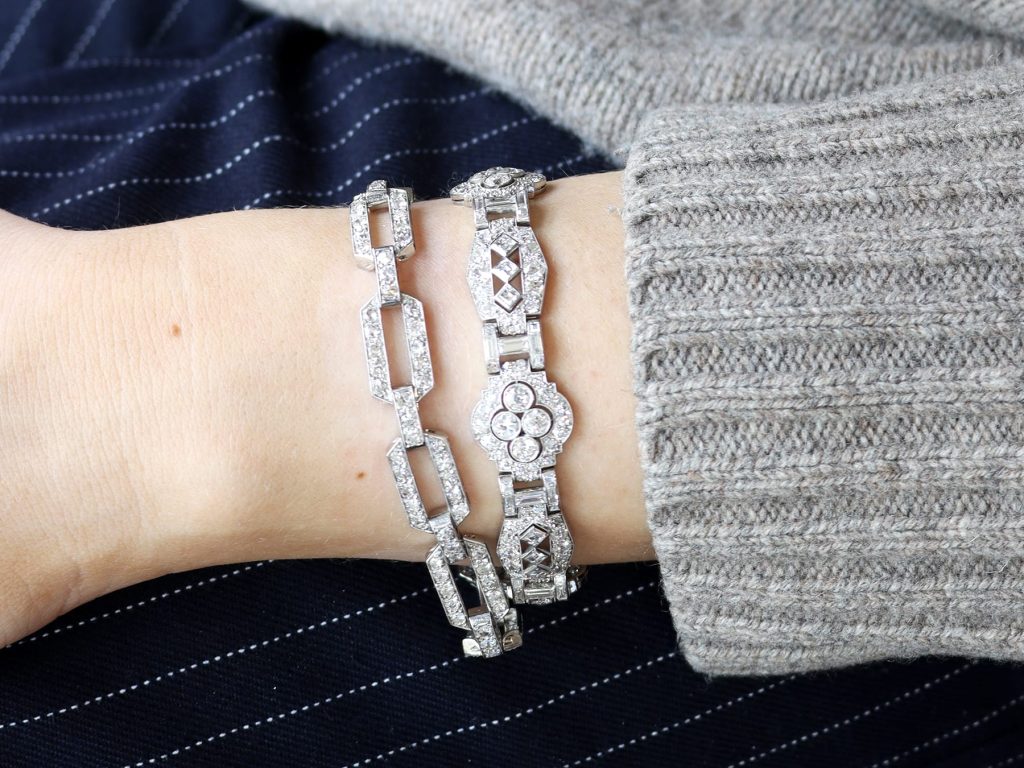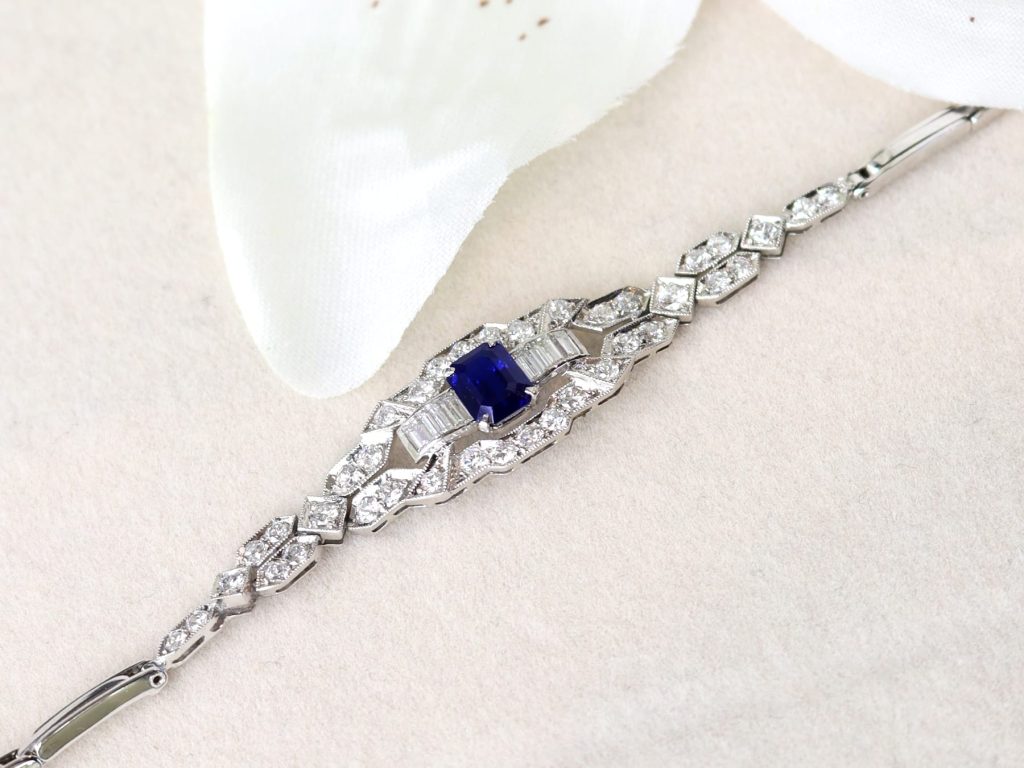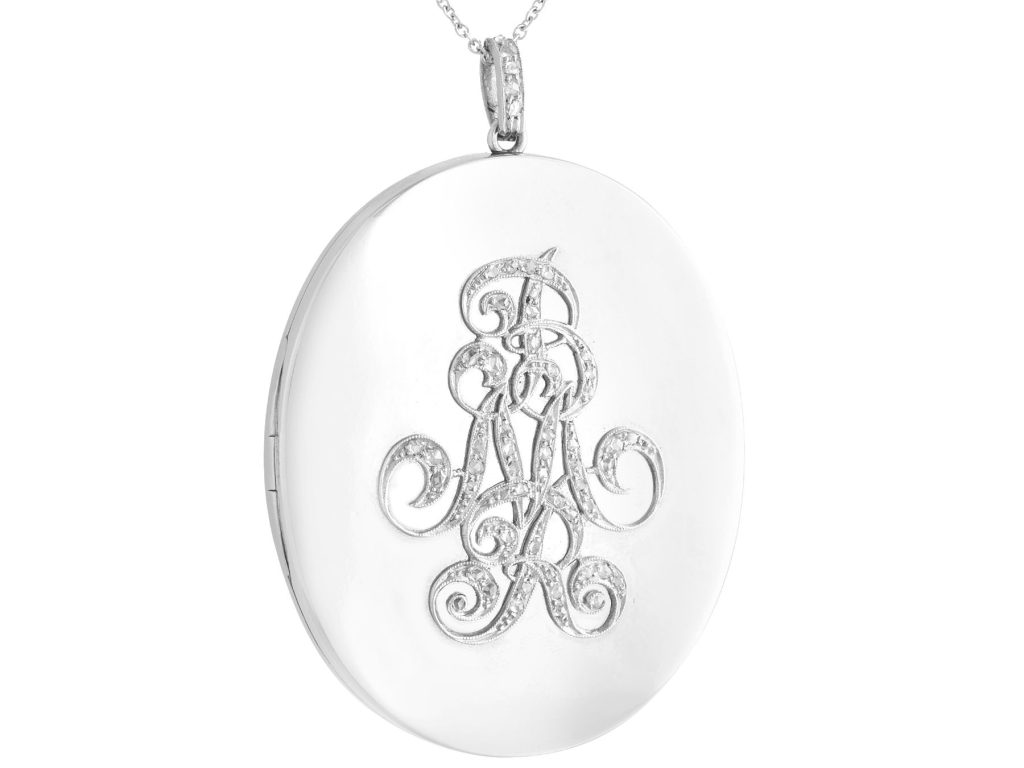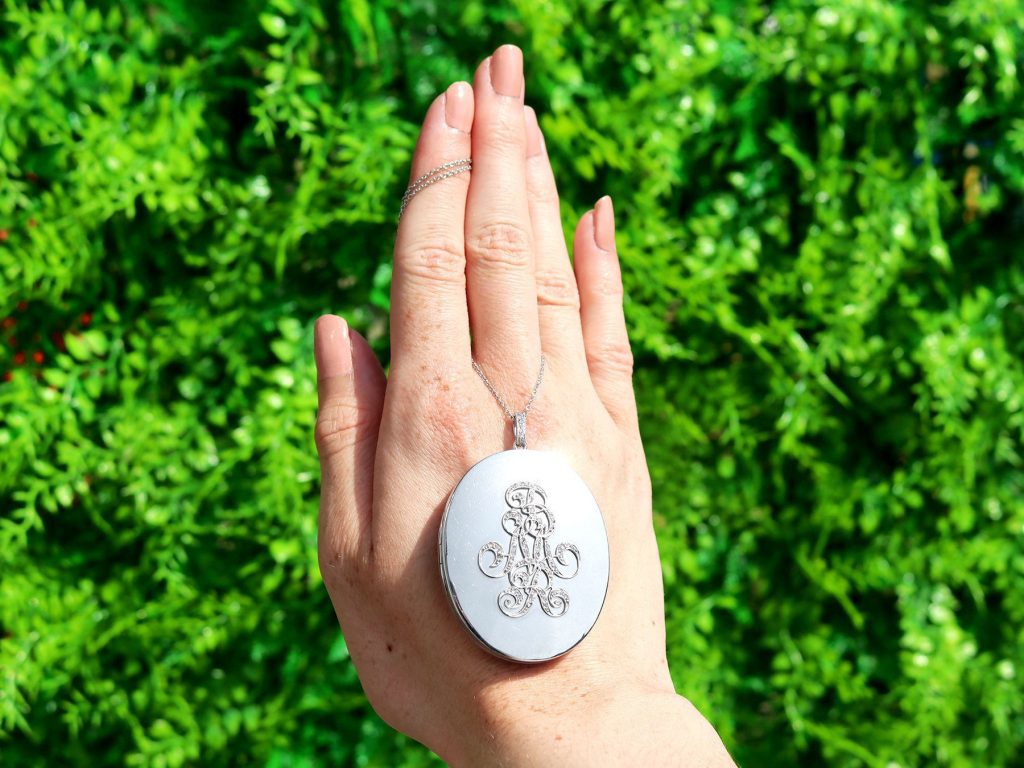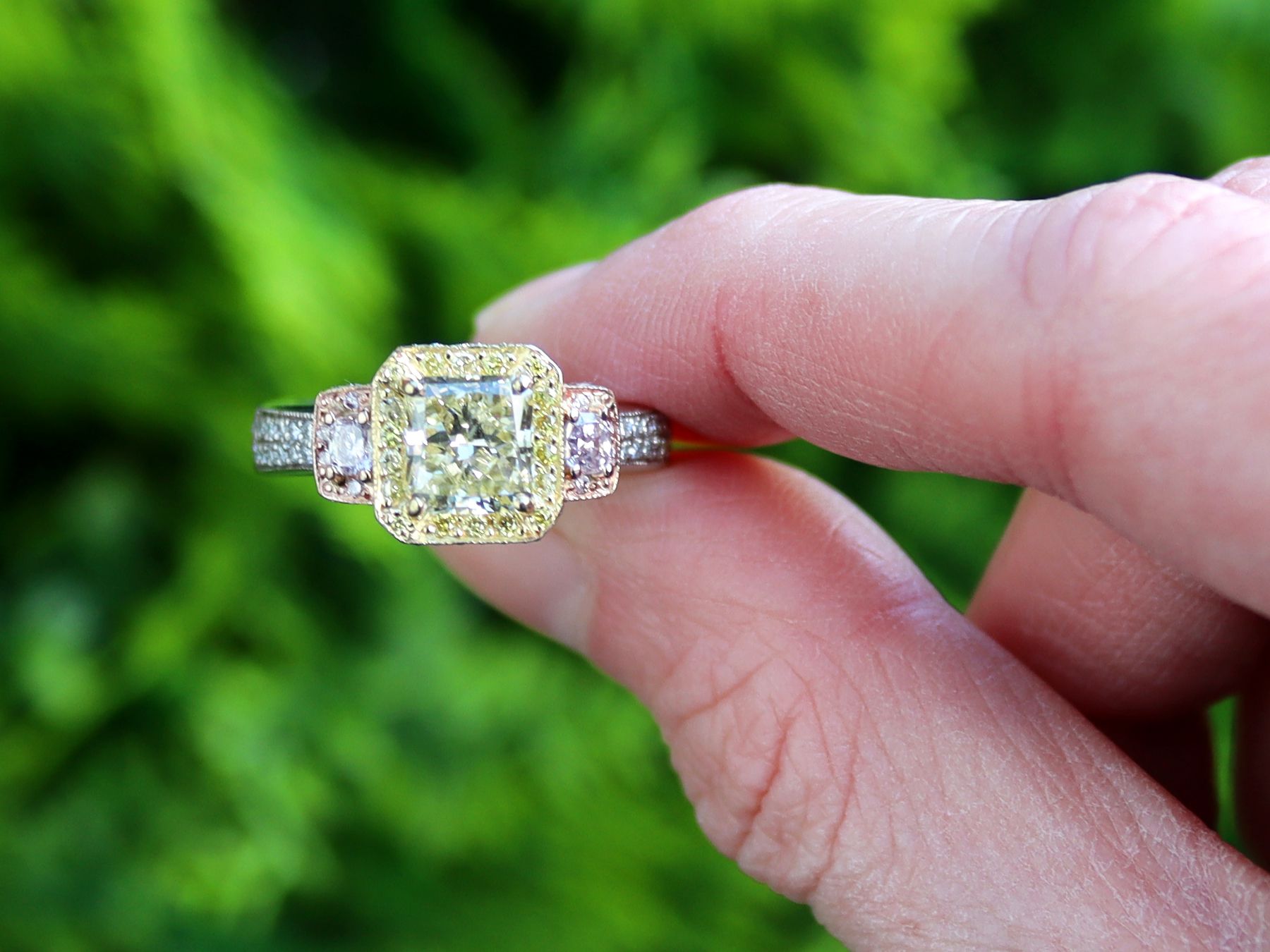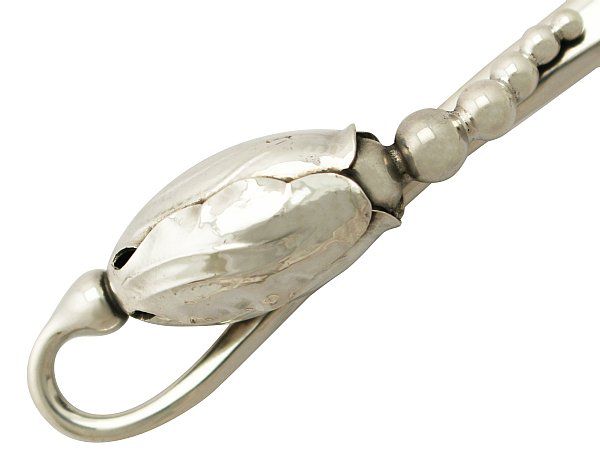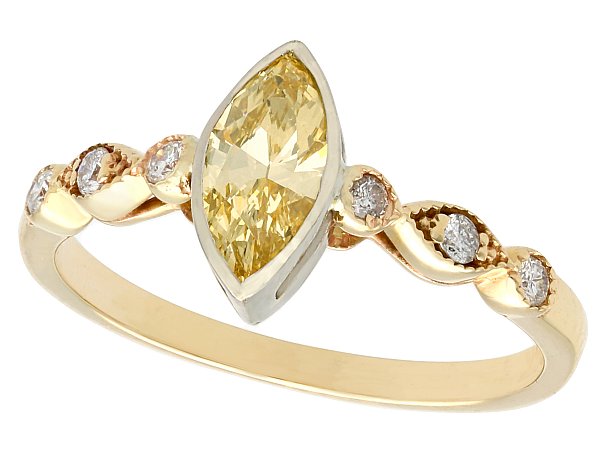The 1920s was a decade of transformation, not just in fashion but also in the world of jewellery. As society shifted towards modernity, so did the styles and materials used in adornments. This blog post will explore the major 1920s jewellery trends, highlighting the unique characteristics of rings, earrings, bracelets, and pendants that defined this vibrant era.
1920’s Ring Trends
The 1920s marked the rise of Art Deco, a vibrant design movement known for its striking, symmetrical lines and bold colours. This style left a lasting impact on various forms of art, including architecture and jewellery, particularly rings. Art Deco rings became legendary for their geometric designs, stunning colour pairings, and the lavish use of gemstones such as rubies, sapphires, emeralds, and diamonds.
Bold Geometric Designs: Rings from this period often featured daring geometric shapes, like squares, rectangles, and chevrons. These patterns created a sense of modernity that was well-suited to the forward-looking spirit of the time.
Cocktail Rings as Status Symbols: With the rise of social freedom and financial independence for women, cocktail rings emerged as must-have accessories for those looking to express themselves. These bold and decorative rings were often showcased at social events, representing both affluence and a sense of liberation.
Flapper Influence: Flappers not only transformed fashion but also made waves in the world of jewellery. Their choice of rings, often set with dazzling stones, became a representation of the bold and carefree attitude that defined women in the 1920s.
The allure of Art Deco rings remains strong among today’s jewellery designers, who are drawn to their sophisticated yet modern aesthetic, appealing to both those who cherish vintage pieces and those who prefer contemporary designs.
1920s Earring Trends
In the 1920s, earrings played a vital role as a fashionable accessory, reflecting the era’s charm and whimsy. With women sporting bobbed hairstyles and elegant updos, earrings became a crucial part of their overall style.
Chandelier Earrings: These stunning, hanging earrings were ideal for formal events and paired wonderfully with the shorter hairstyles of the time. Typically adorned with diamonds, pearls, or semi-precious stones, chandelier earrings brought an extra layer of elegance and charm.
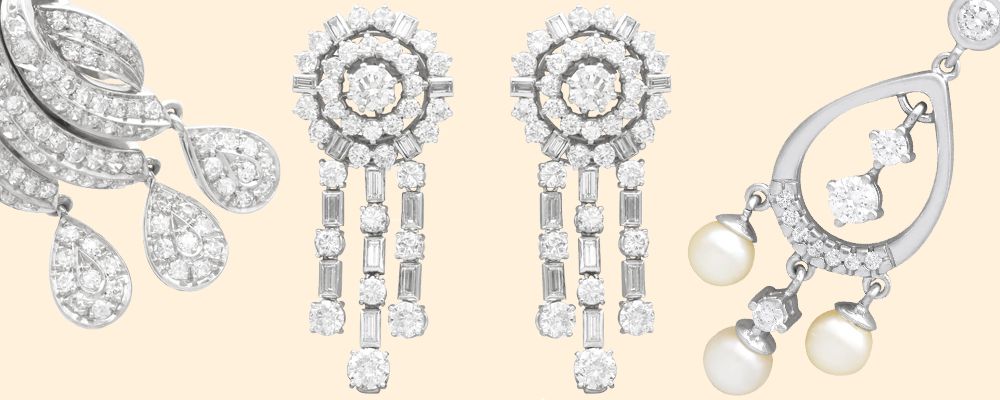
Everyday Elegance with Simple Studs: While chandelier earrings are the stars of parties and special events, stud earrings have gained popularity for everyday use. Often crafted from pearls, diamonds, or gemstones, these understated yet chic accessories bring a touch of luxury to any outfit without being too flashy.
Jazz Influence: Jazz music and its lively cultural scene played a crucial role in shaping jewellery styles. Designers embraced rhythmic patterns and a sense of motion in their creations. Earrings, for instance, often featured innovative shapes and designs that drew inspiration from musical elements, perfectly capturing the fun and vibrant spirit of the Jazz Age.
1920s Bracelet Trends
In the 1920s, bracelets were a vibrant mix of luxury and artistic flair. The trend of stacking bracelets took off, as women began to embellish their wrists with several pieces, resulting in a beautiful layered appearance that highlighted an array of textures, colours, and designs.
Stacked Bangles and Bracelets: The trend of stacking bangles or bracelets has become a favourite among women, offering the chance to combine different metals, stones, and shapes. It’s common to see gold, platinum, and silver bracelets embellished with diamonds or vibrant gemstones layered together for a stunning look.
Statement Bracelets: The 1920s marked the emergence of eye-catching cuff bracelets that boasted elaborate Art Deco designs. These wide pieces often incorporated bright gemstones or showcased detailed geometric patterns, making them truly stand out as statement accessories.
Charm Bracelets: The rise of charm bracelets brought a new wave of fashion, where each charm carried its own special meaning or personal flair. These bracelets provided a unique opportunity for customization, featuring charms that celebrated your passions, journeys, or important milestones.
The trend of stacking and layering bracelets added a touch of glamour and was a way for women to display wealth, taste, and personality in a subtle yet powerful manner.
1920’s Pendant Trends
Pendants in the 1920s were more than just decorative items; they often carried personal significance and added a touch of elegance to any outfit. Long necklaces with pendants became an essential part of the flapper look, draping gracefully over dresses and adding a sense of fluid movement to the wearer’s silhouette.
Locket Pendants: Lockets are more than just jewellery; they are sentimental treasures that often house beloved pictures or little mementos. Their emotional value makes them cherished keepsakes, turning them into timeless heirlooms that families proudly pass along through the ages.
Drop Pendants: With their sleek and elongated designs, drop pendants elevate any look with a sense of sophistication. Frequently featuring stunning gemstones, they move gracefully with the wearer, enhancing their elegance and charm.
Symbols of Individuality: During this time, pendants frequently featured designs like flowers, animals, or abstract shapes. These motifs provided women with a way to showcase their unique personalities and styles, infusing an element of intrigue and charm.
No matter if they are displayed on short or long chains, pendants have always been a significant way for women to highlight their personal style, bringing an air of sophistication that is still favoured in today’s jewellery trends.
The jewellery trends of the 1920s were a reflection of a society in flux, embracing modernity and self-expression. From the bold designs of rings to the elegance of pendants, each piece told a story of the era’s cultural shifts. As we look back on these trends, we can appreciate how they continue to influence contemporary jewellery design, reminding us of the timeless allure of the 1920s.

